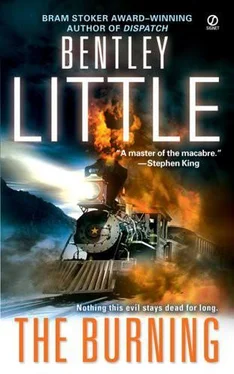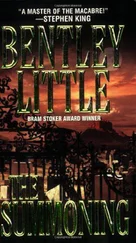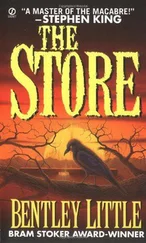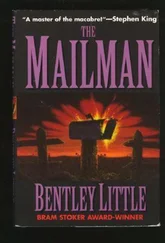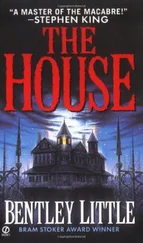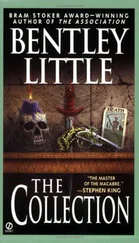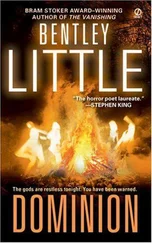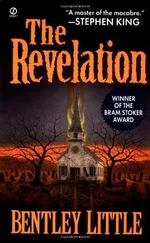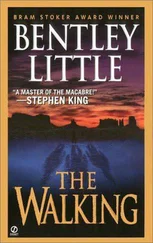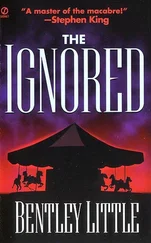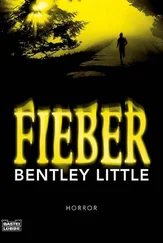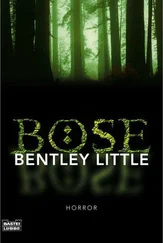They drove fast, took shortcuts, wasted no time, but it was still fifteen minutes before they returned. Although Derek's mom had a rough understanding of some of what was going on, he decided on the way over to tell his family nothing of today's events. The truth would take too long to explain. He'd simply ask them to get into the car because there was something he wanted to show them. He hoped aloud that his brother, Steve, was home, that they wouldn't have to hunt him down at school or at some friend's house, but they got lucky on that count and he was just arriving home from a minimum day, being dropped off by a friend's mom, when they pulled up in the driveway.
There was no packing or gathering of possessions. Having driven to Derek's house, they picked up his mom and brother and drove back.
But as Angela had known, as she'd feared, the train was gone by the time they returned, although black smoke still hovered in the air above the tracks. No police, fire trucks or ambulances had responded to the accidents, and Good Samaritans were helping two crash victims who appeared to be injured. Everyone else was kind of milling around in a daze, looks of stunned incomprehension on their faces.
There'd been no talking in the car, but Angela could tell that Derek's mother had been getting more and more suspicious, and now she said, "What's going on here? What did you bring us out to see?"
Derek didn't answer but stopped the car and jumped out, leaving his door open. "Where did it go?" he demanded of the people closest by. "The train? North or east?"
The smoke smelled foul. Brimstone, Angela thought. From hell.
"I think it forked off toward Page!" someone shouted.
"Follow the smoke!" another man suggested.
That was a good idea, Angela thought. Derek obviously thought so, too, because he was back in the car seconds later and driving toward Flagstaff Mall.
"What is going on?" Derek's mom demanded. "Where are you taking us?"
"North," he said.
Twenty-five
Washington, D.C.
Rossiter stared out at the cubicles in front of his office, trying to digest what he'd learned.
On the desk was a volume of the unexpurgated memoirs of Ulysses S. Grant. He'd known, of course, that presidents' memoirs and diaries were sanitized, their words edited and bowdlerized for public consumption, ostensibly for reasons of "national security," but he'd been surprised to learn that he'd needed top top secret clearance in order to view a manuscript so old. What in God's name, he'd wondered, could possibly be in there?
He'd found out quickly enough. The drunken old bastard had written down far more than he should have, had spilled the beans about a brutal massacre that had occurred in the Utah territory in which scores of innocent civilians had been killed by U.S. troops for no apparent reason. The president had gotten involved after the fact, directing the cover-up like a military operation, a tactic so successful that no mention of it had ever been made anywhere by anyone involved-except here. But Grant was maddeningly vague about the location of the slaughter or the ostensible reason it had occurred.
Ordinarily, the cover-up was worse than the crime. But in this case, that was obviously not so.
"/ most regret the incidents in emulation," Grant wrote.
/ have no means of knowing how news of the Massacre could have reached the ears of others, but it is plain to me that it has. My emissaries tell me that it is impossible to judge how many have been killed in these like-minded attacks, and though the victims be heathens and infidels, killing without cause is ever wrong.
Heathens and infidels.
It was the only clue Rossiter had as to the identity of the victims, and since vast sections of the nation were at that time uninhabited by Christians or Europeans, particularly in the West, it didn't exactly narrow down the field.
He was not one to scoff at curses and ghosts and retribution from beyond the grave, not after what he'd seen, not after Wolf Canyon. And he could understand why Grant might be targeted, why his tomb might be desecrated and his body defiled. It tied in as well with all those Civil War dead who'd been disinterred and tossed about Arlington National Cemetery. Even the White House might be fair game for vindictive spirits out to avenge a massacre.
But how did that relate to the other unexplained incidents that were happening all over the country?
The latest was at Mount Rushmore, where twin lines had been carved on the faces of the presidents, as though a giant with a switchblade had slashed twice across the stone.
Or a train had driven sideways across the mountain.
For that was the first thing he thought when he saw the photos: train tracks. Although since that was all he'd been thinking about for the past three days, such an interpretation was probably to be expected.
Grant's head wasn't carved on Rushmore, though. So what was the connection?
And what was the significance of trains in all this?
Everything was confusing; nothing quite fit together. He was already taking heat from all the president's men for not putting this mystery to rest. The leader of the free world needed to be able to focus on a whole range of important issues that were coming to a head, the chief of staff said. But instead he was obsessing over the attack on the White House to the virtual exclusion of everything else.
As well he should, Rossiter thought.
He pressed a key on his desktop PC and the image of a train, generated from data extracted from damage to the White House and analyses of shatter patterns, appeared on-screen. The president was right. Whatever had crashed through the building may have been invisible, but it was definitely a locomotive. Rossiter pressed another key and the angle shifted, offering a three-dimensional view of the CGI train. He'd contacted railroad experts from all over the country, hoping someone would be able to identify the engine, assuming they would recognize it as one that had been in use during Grant's tenure, between 1869 and 1877. But either the computer model was flawed or the information it had been fed was contradictory, because no one recognized it. The picture looked like a typical train to him, but he was assured by a whole host of scholars and railroad professionals that it did not resemble any known locomotive.
Rossiter found that troubling.
The press had been successfully kept away from Arlington and Grant's Tomb, and were buying the cover story about the White House, but reporters were all over Mount Rushmore, and it was probably only a matter of time before the lid blew off everything and he found himself hip-deep in dog shit.
News was starting to come in from a variety of sources, and he had a whole team of agents sifting through information both new and old, trying to find connections and correlations. A lot of it was useless and had no bearing on anything, but some of it was pertinent to the investigation and he wanted to make sure nothing was overlooked. There was, for example, a report that some sort of phantom train had appeared in Zion, Canyonlands or one of those other Utah national parks. That was something that called for further investigation.
It had to be something that bore a grudge against the United States, he thought, because it was targeting not just relics from the Civil War era but buildings and land owned collectively by everyone in the country, like national parks. Whatever it was, it was not after a specific person or place; it was attacking the most potent symbols of the entire nation.
The screen on his monitor suddenly turned red, the picture disappearing, and a loud shrill beeping issued from the speakers.
There'd been an attack on the White House.
Читать дальше
